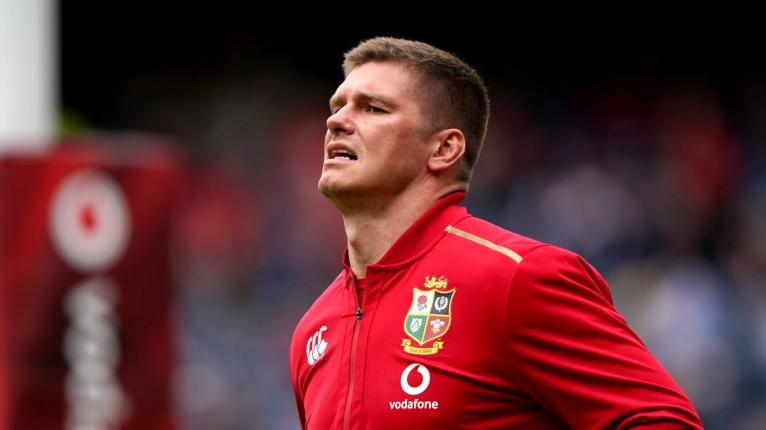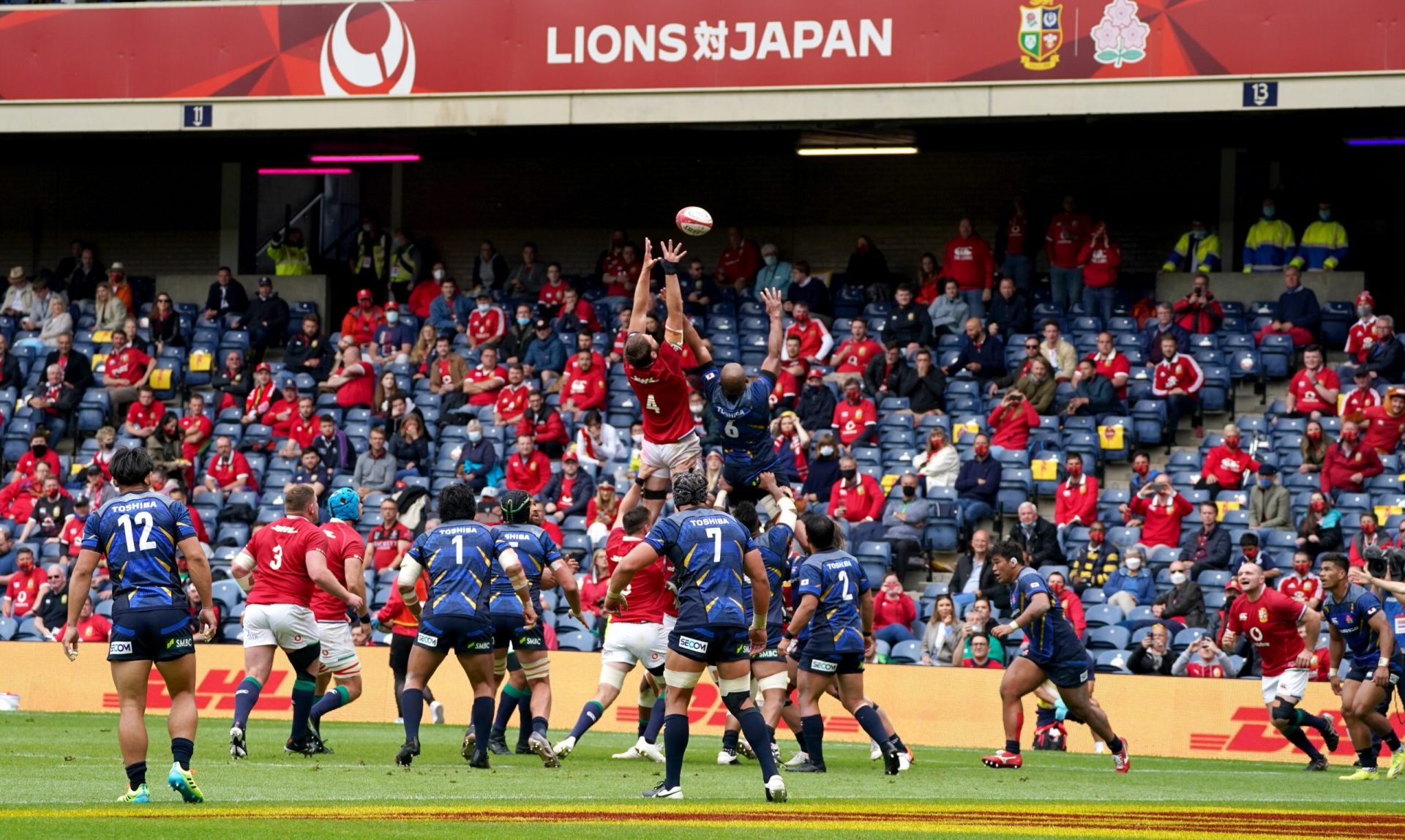My first message would be, let’s not get carried away. Before the game, the Sigma Lions had the worst defensive record of any of the South African teams and it led to the tourists scoring eight tries. In the same way as Japan, the hosts had more ball than the British & Irish Lions, but what that tells me is that Gatland’s men are playing smarter more efficient rugby; striking at teams when they have dominance but they do not want to go through phase after phase if they’re not going anywhere. Come the Test Series, as the Lions look to keep the Springboks from stifling momentum with their suffocating physicality, this will be crucial.
The game was fascinating, so I’ve picked out a few points that caught the eye; the lineout, the white-hot backrow battle, ironing out kinks in defence and the attacking shape Warren Gatland’s men were employing to get into the wider channels.
The battle for back-row places
All the plaudits went to Hamish Watson after a man-of-the-match performance, but I thought Courtney Lawes was sensational. Gatland picked Lawes after a long injury and I assumed his role would be as a hybrid back-five player for the Tests, someone who was defensively aggressive so Gats could pick another second-row or an out and out openside. After that performance, I don’t think Courtney is nailed on for a starting place just yet, but I do think he’ll make the Test 23. He’s starting to make himself indispensable.
His reputation is as a defensive, Exocet tackler but where he’s evolved his game over the last two years is his ball-carrying. Eddie Jones has always wanted him to improve in that area, but maybe through the influence of Chris Boyd, it has gone through the roof. Finn Russell stood at first-receiver 30 times, as you’d expect, but second was Lawes who stood there 11 times with Owen Farrell next on five. He had a 90 per cent collision success when he carried but he didn’t just truck it up, he beat three defenders and tipped on some beautiful passes to give the likes of Maro Itoje and Taulupe Faletau one-on-one’s with defenders so they could easily win the collision. That’s game-intelligence. The variety in his game made him difficult to defend against. If you had him starting at No 6, you wouldn’t necessarily need an extra second-row on the bench.
Defensively, because of his shoulder injuries, he’s had to become more accurate in his tackle technique. And he can’t just fly in and smash someone high with the shoulder anymore, a timely adaptation in his game with how the game is being refereed, so he’s had to lower the height of his tackle. Saying that he still has the ability to cut someone in half. Courtney has 87 caps for England and that experience shouldn’t be underestimated. He will have given Gatland food for thought.
Defence off to a good start but improvements need to be made
Defensively Steve Tandy will be pretty satisfied, but they will need to tighten up in certain areas. Looking at Steve Tandy’s system unless you’re outnumbering them defensively, it’s hard line-speed and then drift. The stats tell us they had an 88 per cent tackle rate with 29 missed tackles. World class numbers are like 95 per cent. Remember it’s the first game of the tour and that probably compares favourably with first games from previous tours.
Owen Farrell missed a few key tackles. One that led to a breakaway from Sibusiso Sangweni and that brilliant Stuart Hogg’s cover tackle, and the other one led to a try from Vincent Tshituka. That will be a slight concern but Farrell is the sort of player whose confidence won’t be affected, he’ll sort it out. Individual missed tackles can be rectified but the one thing they will want to sort out is the odd dog leg in the defensive line. Jonny Hill was taken out for the second try that was nearly chalked off, but that just accentuated the weakness.

As a defender you’ve got to be aware if someone on your inside is getting held and tread water a little bit. Russell kept going forward to give that line-speed and got caught. This tells me they’ve obviously had it drummed into them not to give any grass between them and the ball-carrier. To close them down quickly before they can gain momentum. The other clear mistake was for the first try after Farrell’s missed tackle down the touchline. The first two defenders went up with line speed but failed to make the hit but Jamie George and Courtney Lawes didn’t go up fast enough, because they were probably worried about the Sigma Lions attacking numbers out wide. As a result, EW Viljoen was able to bounce out of those first defenders the dog leg meant he had time to exploit Lawes and force Watson to step in towards him then float a pass for Tshituka to run into the channel between the Scot and Josh Adams who had held his position out wide giving the home team a walk-in with acres of space before the covering Chris Harris could get across.
The tourists won most of their collisions and that was one of my minor criticisms of Faletau, who had a decent game with ball in hand. Maybe after years of playing with Josh Navidi and Sam Warburton jackaling, he hasn’t had to be so dominant in the tackle but how did the Boks beat England in the World Cup Final? It was by outmuscling them on the gainline. He’ll need to up his physicality in defence.
Lions intent to get the ball out to that the 13 channel
Whether it’s Russell or Dan Biggar against Japan, the clear intent was to get it wide and into the 13 channel. The British & Irish Lions will want to manipulate space in the wider channels against the Springboks because, as England discovered in Yokohama they’re not going to let you run through their ruck defence and have a field day like England did against the All Blacks in the World Cup semi-final. You have to try get them to bite in so they lose all their physicality in the wider channels. Both 10s have done that.
Finn Russell or Ali Price would hit our bigger ball-carriers who became the pivot for everyone to loop round, like you saw with Jamie George for Louis Rees Zammit’s try. They didn’t take the ball hard into contact unless they’d kept the defence narrow. They invited those defenders to come in on them and then popped the ball away and worked numbers on the outside after the loop, which meant you nullified the physicality of the defence because they had to shift to a more passive drift. It worked well.
Showing their hand early?
At the set-piece, it was interesting to see what the British & Irish Lions were doing attacking around the back of the lineout and with the long ball over the top. Why would they show their hand so early in the tour? Usually the aim is to get to the Tests with a few surprises lined up which makes me wonder if it’s a red herring. To sow the seed of doubt in big guys like Pieter-Steph du Toit and his lifters minds at the back of the lineout. If you want to play off there and they’re competing hard – the best way to stop that is to get the back lifter to think, ‘Christ, this might come over the top’. It’s a clever ploy.

I wonder whether it’s set-up for the Lions so that the first drive of the game in the Tests they get some dominance by creating hesitation in the Boks defenders as speed of reaction is crucial in maul defence. When you get confident with your driving game it creates a fear factor for your opposition. If the Springboks know what you’re going to do, they will destroy you because they will impose their physicality. Gats and his coaches want the Boks rocking back on their heels rather than their toes because they’re trying to buy themselves time to work out what you’re doing. If Jacques Nienaber’s boys know what’s coming, it will be a long day at the office.






























































